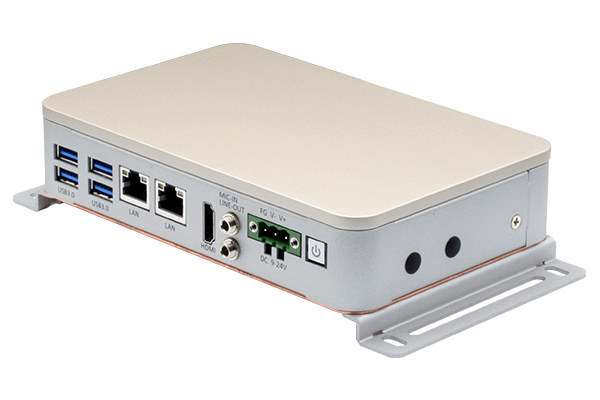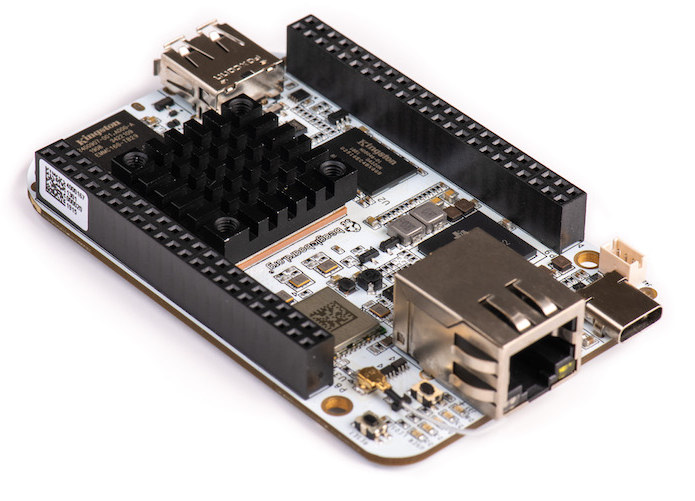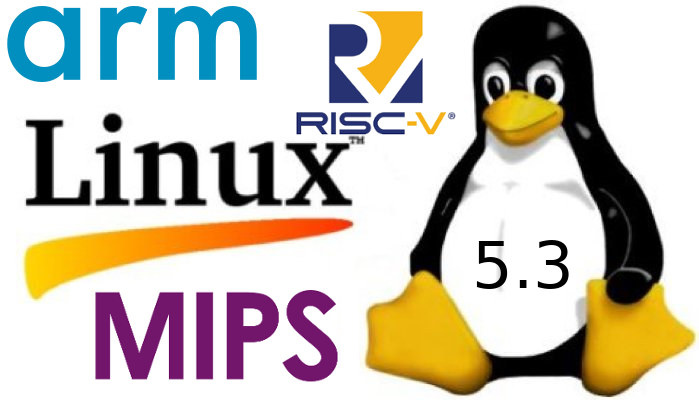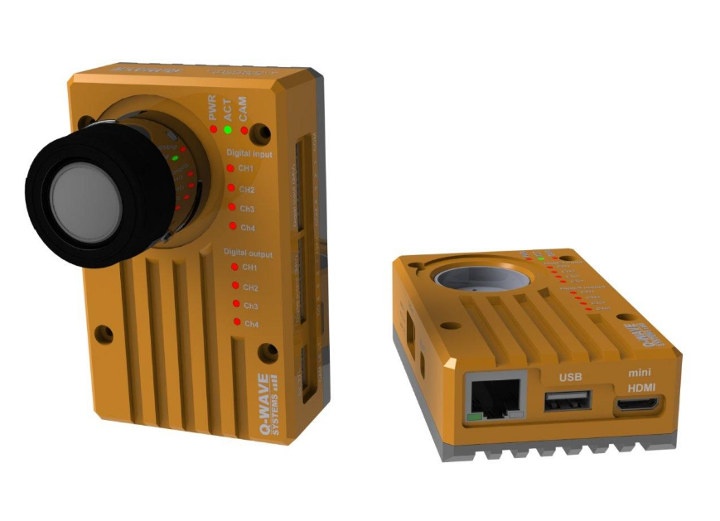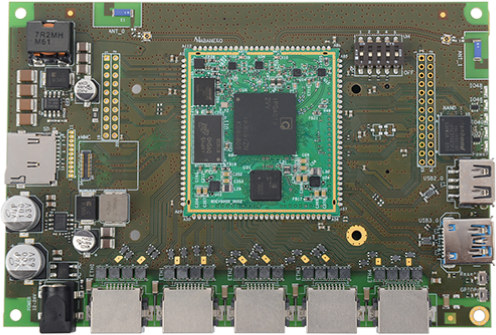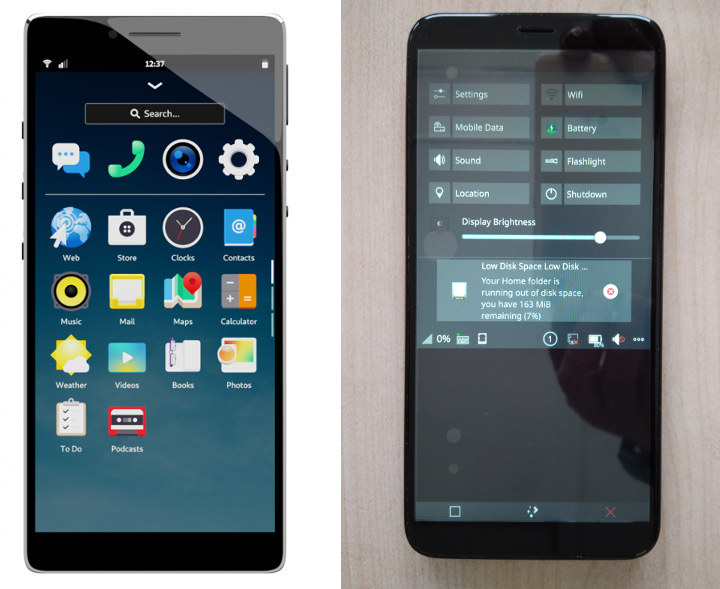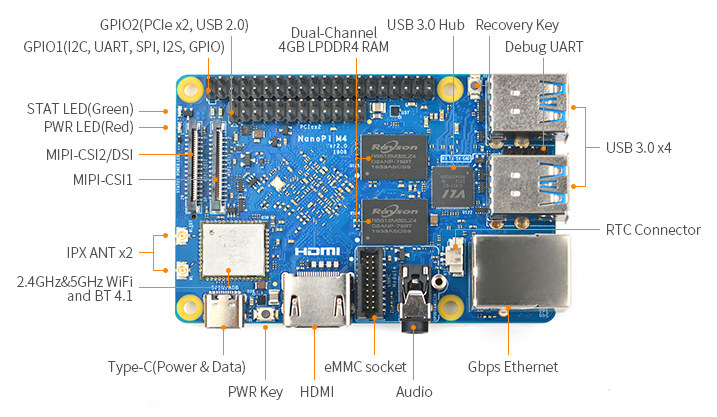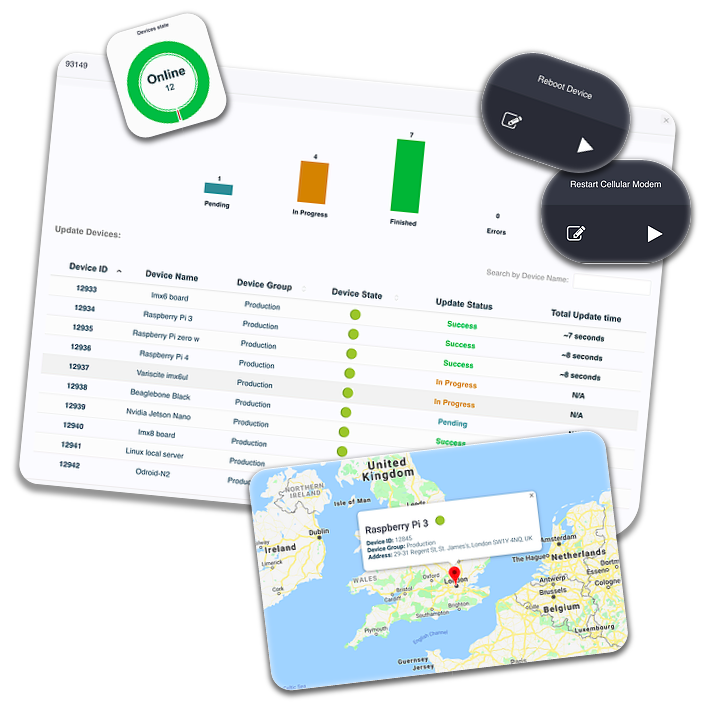We’ve covered several of AAEON rugged mini PCs part of BOXER-8100 family powered by an NVIDIA Tegra X2 processor and targetting AI Edge applications. The company has now introduced three new AI embedded computers for the same AI edge applications but using Intel processors together with Intel/Movidius Myriad X VPU (Vision Processing Unit) for AI acceleration. The three models are BOXER-8310AI, BOXER-8320AI, and the upcoming BOXER-8330AI based on respectively Intel Celeron/Pentium Apollo Lake processor, Intel Core i3 7th gen processor, and an Intel Core i3/77 or Xeon processor. I’ll focus on the Apollo Lake model in this post to introduce AAEON BOXER-8300AI family of rugged mini PCs. BOXER-8310AI specifications: SoC (one or the other) Intel Pentium N4200 quad-core Apollo Lake processor Intel® Celeron N3350 dual-core Apollo Lake processor System Memory – 1x DDR3L SODIMM slot supporting up to 8GB RAM @ 1867 MHz Storage Device – mSATA socket AI Module […]
$118 BeagleBone-AI SBC is Made for AI Edge Applications
The BeagleBoard.org Foundation introduced BeagleBone-AI SBC at Embedded World 2019 last February. The board is specifically designed for artificial intelligence workloads at the edge thanks to Texas Instruments AM5729 dual-core Cortex-A15 processor that embeds a dual-core C66x DSP, and 4 EVE (Embedded Vision Engine) cores. The BeagleBone Black compatible board was not available at the time, but the Foundation has now formally launched the board, and you can buy BeagleBone-AI for $118 and up with heatsink and antenna on sites such as Mouser, OKdo, or Newark. BeagleBone-AI full specifications have now been published: SoC – TI Sitara AM5729 with Dual-core Cortex-A15 processor @ 1.5 GHz 2x dual-core PRUs 2x Cortex-M4 real-time cores dual core C66x VLIW DSP 4x EVEs 2.5MB of on-chip L3 RAM VA-HD subsystem with support for 4K at 15fps H.264 encode/decode and other codecs at 1080p60 Vivante GC320 2D graphics accelerator Dual-Core PowerVR SGX544 3D GPU System […]
Linux 5.3 Release – Main Changes, Arm, MIPS & RISC-V Architectures
Linus Torvalds has just announced the release of Linux 5.3: So we’ve had a fairly quiet last week, but I think it was good that we ended up having that extra week and the final rc8. Even if the reason for that extra week was my travel schedule rather than any pending issues, we ended up having a few good fixes come in, including some for some bad btrfs behavior. Yeah, there’s some unnecessary noise in there too (like the speling fixes), but we also had several last-minute reverts for things that caused issues. One _particularly_ last-minute revert is the top-most commit (ignoring the version change itself) done just before the release, and while it’s very annoying, it’s perhaps also instructive. What’s instructive about it is that I reverted a commit that wasn’t actually buggy. In fact, it was doing exactly what it set out to do, and did it […]
Raspberry Pi CM3+ based EagleEye Smart Camera Works with OpenCV and LabVIEW NI Vision
We previously covered Q-Wave Systems’ Melon S3 board combining a Xilinx Spartan 3E FPGA with ESP8266, but the Thai company is back is a completely different product: EagleEye Smart Camera. The board is powered by Raspberry Pi Compute Module 3+ (CM3+) with 16GB or 32GB flash, and equipped with a 5 MP camera for machine vision and robotics applications. There are two version of the board Uno and Industrial with the latter adding 24V digital input and outputs, circuit protections and support for industrial temperature range. EagleEye smart camera key features & specifications: SoM – Raspberry Pi CM3+ with Broadcom BCM2837B0 quad core cortex-A53 processor, 1 GB RAM, and 16GB or 32 GB flash Camera – 5 MP OV5647 image sensor, CS/M12 lens holder + 4mm CS lens Video Output – mini HDMI port Networking – 10/100M Ethernet USB – 1x USB 2.0 host port up to 1.2A Expansion Uno […]
Habanero Qualcomm IPQ4019/IPQ4029 SoM Brings 802.11ac Wave2 WiFi to Linux Gateways and Routers
Last April, we first wrote about Qualcomm IPQ4019 quad-core Cortex-A7 processor with built-in 802.11ac Wave 2 WiFi, as it was found in Qualcomm Mesh Networking DevKit with support for Amazon Alexa. A few months later, we discovered router boards powered by either IPQ4019 or IPQ4029 processor such as Dakota DR40X9 or MikroTik RB450Gx4. The latter does not come with WiFi at all and instead leverages the hardware IPSec encryption built-into the processor. Habanero System-on-Module Today, we’ve come across the first IPQ4019 / IPQ4029 system-on-module we’ve countered so far, courtesy of 8devices with their Habanero and Habanero-I 802.11ac Wave 2 modules based on the respective processors. Habanero(-I) specifications: SoC – Qualcomm IPQ4019/IPQ4029 quad-core Arm Cortex-A7 processor @ 717 MHz with NEON, FPU, hardware-based NAT engine, and crypto accelerator System Memory – 512 MB DDR3L RAM Storage – 32MB NOR flash; up to 1 GB NAND flash on baseboard Connectivity QCA8075C 5-port […]
Librem 5 & Pinephone Linux Smartphones to Launch This Fall
There are too highly anticipated Linux smartphones currently in development namely Purism Librem 5 and Pine64 Pinephone. The first one, based on NXP i.MX 8M processor is fairly pricey ($699) partly because of better specifications, but mostly because the company handles software development internally, while Allwinner A64 Pinephone has somewhat lower specifications, but a much lower $150 price tag as software development is done by the community. Neither phones are available, and until a few days ago there were no clear launch dates. This has now changed as Purism announced Librem 5 would start shipping on September 24, while Pinephone first batch is scheduled for mid-October, which should also be the date for the launch of pre-orders, and shipment will start in November. This sounds great, but be warned the first phones will be for enthusiasts who do not mind having a few defects and missing hardware/software features, and the […]
$70 NanoPi M4V2 SBC Gets 4GB LPDDR4 RAM, Power & Recovery Buttons
FriendlyELEC NanoPi M4 is a Rockchip RK3399 single board computer that follows Raspberry Pi 3 form factor, and was launched in a year ago for $65 with 2GB RAM, and $95 with 4GB RAM. Raspberry Pi 4 introduction brought some more competition, and helped the prices drop to $50 and $75 respectively. But now the company has launched a revision 2 of the board, NanoPi M4V2 that replaces LPDDR3 memory with faster LPDDR4 memory, adds power & recovery buttons, and the audio jack now also support microphone input. It’s only available with 4GB LPDDR4 memory, and the price is lower at $70. The rest of the specifications are mostly identical: SoC – Rockchip RK3399 big.LITTLE hexa-core processor with 2x Arm Cortex-A72 @ up to 2.0GHz, 4x Cortex-A53 @ up to 1.5GHz, a Mali-T864 GPU with support OpenGL ES1.1/2.0/3.0/3.1, OpenVG1.1, OpenCL, DX11, and AFBC, and a VPU with 4K VP9 and […]
UpSwift – Manage IoT & Embedded Linux Devices Easily & Quickly
UpSwift offers a GUI based management interface to their customers to update, manage, control & diagnose IoT and embedded devices. The solution also supports OTA updates to any device which is running the Linux operating system including Raspberry Pi board and other Arm SBC’s. Because of the pull-based, client/server architecture, the client-side binary looks for updates in configurable frequent interval and executes the changes and updates. The communication between the client and the server is established over secured REST API’s. By monitoring the applications logs and other device parameters, UpSwift’s Cloud-Smart engine is capable of behaving intelligently by sending email alerts to the administrator. UpSwift Basic WorkFlow Post-registration and package selection with UpSwift Cloud-based dashboard, customers can start adding their devices into UpSwift dashboard. Depending upon the selected plans (number devices connected, features, etc.. will vary depends on the plan chosen), customers will be able to manage their products remotely. […]


